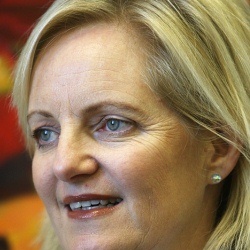Lifestyle/Community
The Freedom Charter – 60 years on
As I write, the Board is preparing for tonight’s 60th anniversary of the Freedom Charter function. The Charter, adopted at the Congress of the People in Kliptown, on June 26, 1955, became the blueprint for a future democratic, non-racial society.

MARY KLUK
We are honoured to have as speakers former President Kgalema Motlanthe and veteran anti-apartheid activist Leon Levy. Levy, in his capacity as president of the SA Congress of Trade Unions, was one of the original signatories to the Charter.
He was one of many members of the Jewish community who participated in the consultation and drafting process; other Jews included Lionel “Rusty” Bernstein, Michael Harmel, Alan and Beata Lipman, Joe Slovo, Ben Turok and Ruth First.
The Freedom Charter foresaw a South Africa where all citizens enjoyed equal rights and all basic democratic freedoms would be upheld. This is summed up in its famous opening statement: “We, the people of South Africa declare…that South Africa belongs to all who live in it, black and white, and that no government can justly claim authority unless it is based on the will of all the people.”
Without this all-embracing, inclusive vision, in fact, it is doubtful that a peaceful, negotiated transition to democracy could ever have occurred. It is worth reflecting on what the result would be in terms of inspiring confidence in their negotiating partners and paving the way to a lasting peace settlement were Palestinian leaders to adopt a “Freedom Charter” of their own.
The UNHRC Report on the 2014 Gaza conflict: preliminary thoughts
Earlier this week, the commission appointed by the UN Human Rights Council to investigate possible human rights violations during last year’s war between Israel and Hamas, released its report.
Given the UNHRC’s notorious record of institutional bias against Israel – shown by, among other things, the infamous “Goldstone Report” – it was taken as a given that the findings would be slanted against Israel.
What emerged was indeed often problematic – for instance, the persistent failure to distinguish between those whose consistent policy is to try to minimise harm to civilians while conducting legitimate defensive operations and those whose equally consistent aim has been to maximise such harm.
That being said, the report was a great deal more balanced and nuanced than its predecessor, and clearly some effort this time around went into taking into account the Israeli position. The Board and SAZF are working together in studying the document and preparing responses.
World Jewish Congress meeting in Jerusalem
As previously reported, I was in Israel last week to take part in a meeting of the steering committee of the World Jewish Congress. The leadership of the 12 largest Diaspora communities, of which South Africa is one, were included in the discussions.
We had the opportunity of meeting with the leadership of Israel from across the political spectrum. It was encouraging to see how, irrespective of their ideological differences, all were deeply committed to achieving a peaceful outcome to the Israeli-Palestinian question.
- Listen to Charisse Zeifert on Jewish Board Talk, 101.9 ChaiFM every Friday 12:00 – 13:00.